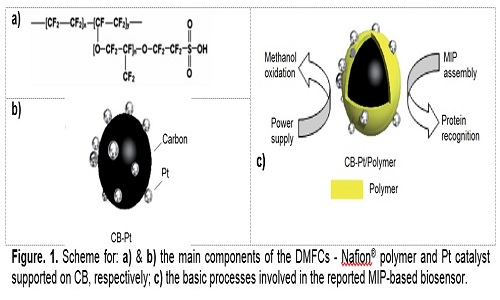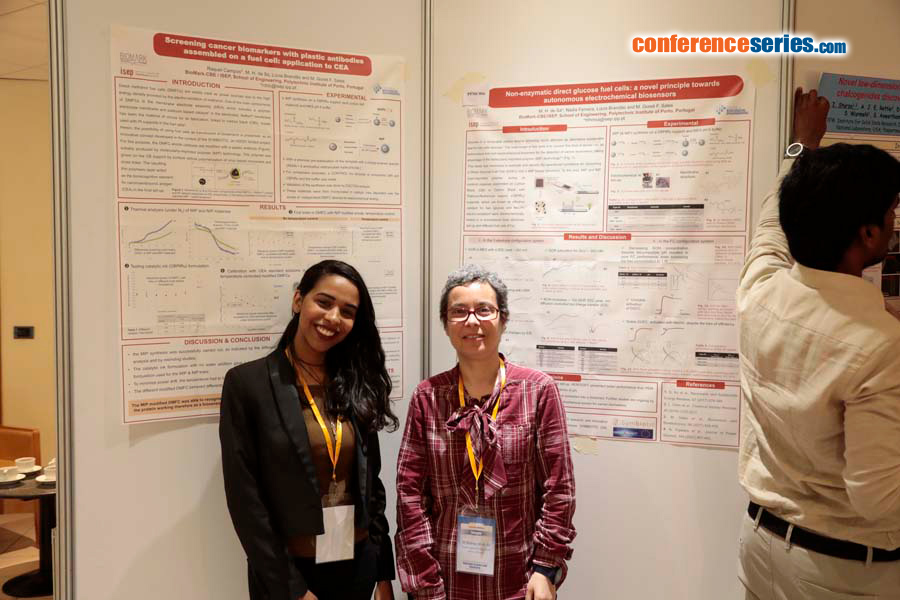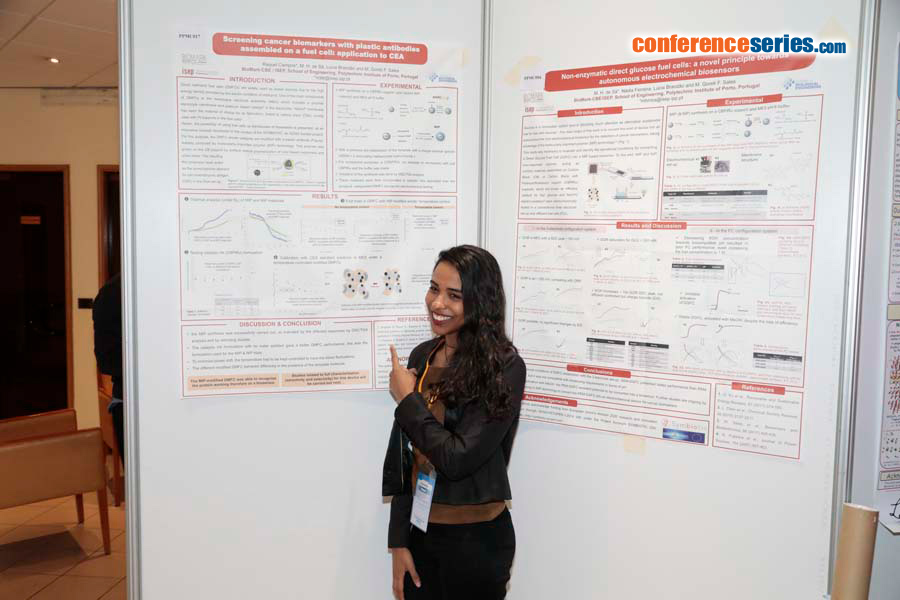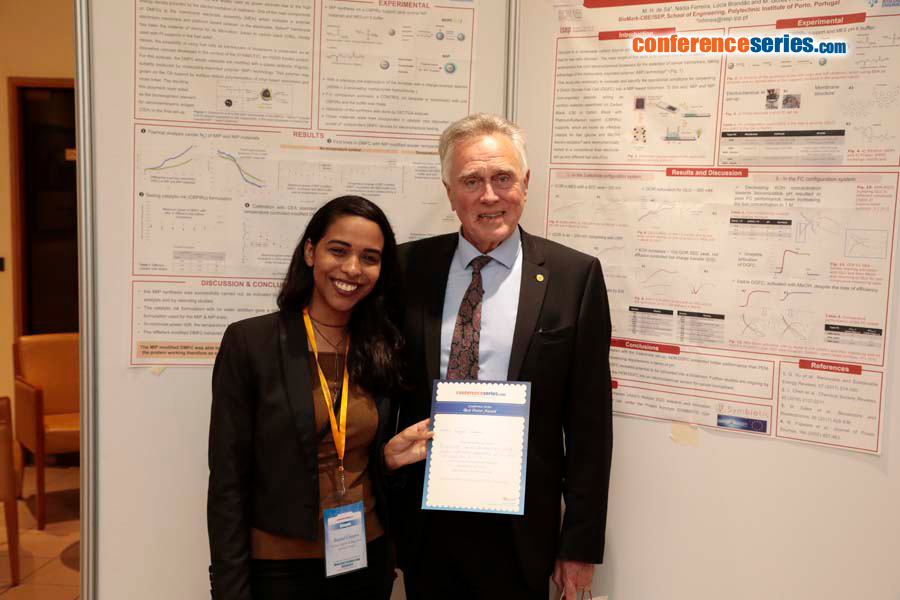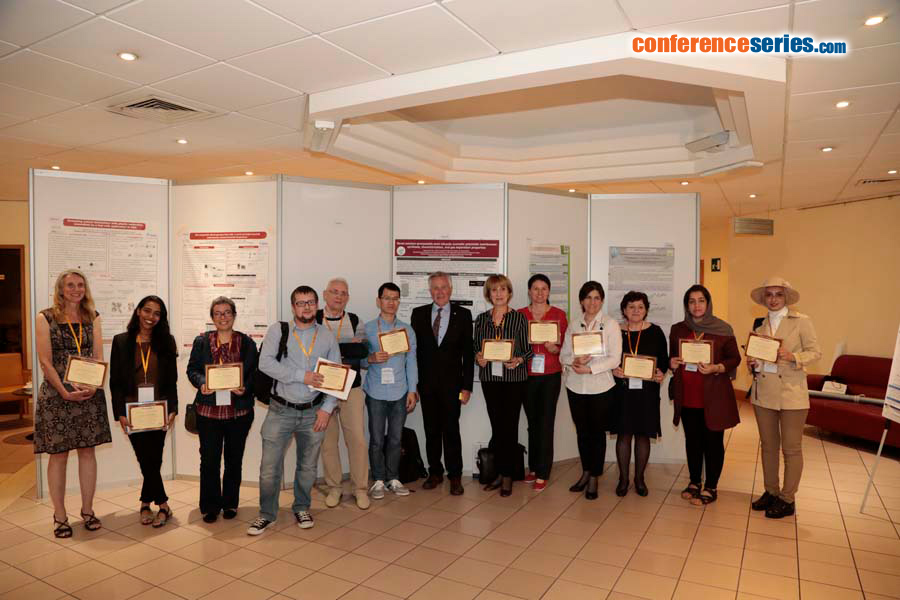
Raquel Campos
Instituto Superior de Engenharia do Porto, Portugal
Title: Screening cancer biomarkers with plastic antibodies assembled on a fuel cell: Application to CEA
Biography
Biography: Raquel Campos
Abstract
Direct methanol fuel cells (DMFCs) are extremely attractive as power sources due to the high energy density provided by the electro-oxidation of methanol, their easy transport and convenient handling of liquid fuel. One of the main components of DMFCs is the membrane electrode assembly (MEA) which includes a polymer electrolyte and a platinum based catalyst. Nafion® has been the material of choice for its fabrication, but the modification of Nafion® and the development of alternative polymers in order to achieve higher performances have also been done. Carbon blacks (CBs) are mostly used as Pt supports in the fuel cells due to their low cost and high availability, good electrical performance, and relatively high surface. The possibility of using this kind of devices as transducers of protein biosensors is an innovative concept developed in the context of the Symbiotic. This possibility has been proven feasible for ferritin and is extended herein to the detection of a cancer biomarker. The aim of this work is to show how we have applied a similar strategy to a different protein, the carcinoembryonic antigen (CEA), a model cancer biomarker. The DMFC anode catalysts were modified with a plastic antibody, suibtably produced by molecularly-imprinted polymer (MIP) technology. This polymer was grown on the CB support by surface radical polymerization of vinyl based monomers and crosslinkers. The resulting thin polymeric layer acted as the biorecognition element for CEA in the final set-up. The stability and analytical performance of the resulting device was characterized by electrochemical techniques. The change in electric power performance of the MIP modified DMFC, after incubation with the target protein, revealed the ability of the biomaterial to rebind. The ultimate aim is that the proposed biosensor can be the core of an equipment-free, user-friendly, cheap electrical device that will allow an autonomous determination of CEA in routine health care systems.


